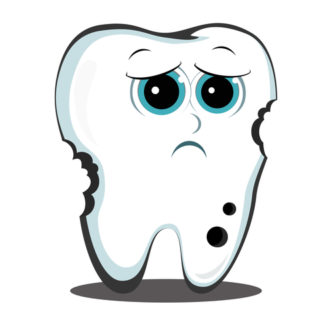- Home
- Editorial
- News
- Practice Guidelines
- Anesthesiology Guidelines
- Cancer Guidelines
- Cardiac Sciences Guidelines
- Critical Care Guidelines
- Dentistry Guidelines
- Dermatology Guidelines
- Diabetes and Endo Guidelines
- Diagnostics Guidelines
- ENT Guidelines
- Featured Practice Guidelines
- Gastroenterology Guidelines
- Geriatrics Guidelines
- Medicine Guidelines
- Nephrology Guidelines
- Neurosciences Guidelines
- Obs and Gynae Guidelines
- Ophthalmology Guidelines
- Orthopaedics Guidelines
- Paediatrics Guidelines
- Psychiatry Guidelines
- Pulmonology Guidelines
- Radiology Guidelines
- Surgery Guidelines
- Urology Guidelines
Chewing sugar-free gum could help reduce tooth decay, a new review finds

A systematic review by King's College London has found some evidence that chewing sugar-free gum could help to reduce the further development of dental caries (cavities) in adults and children.
Published today in the Journal of Dental Research: Clinical & Translational Research, the review found some evidence that chewing sugar-free gum can reduce the advancement of dental caries, and could be used as a viable preventative agent, in comparison to non-chewing control methods such as oral health education and supervising toothbrushing programmes alone.
It included analysis of studies published over the last 50 years, identifying 12 which explored the impact and intervention outcome of chewing sugar-free gum on oral health conditions, and in particular, dental caries on adults and children. Sugar-free gum was found to reduce caries increment, giving it a preventative factor of 28%.
"There is a considerable degree of variability in the effect from the published data and the trials included were generally of moderate quality", explains lead author Professor Avijit Banerjee, Professor of Cariology & Operative Dentistry at King's College London.
"However, we felt there was a definite need to update and refresh existing knowledge about sugar-free gum and its effect on dental caries and oral health. We are planning further research to determine the acceptability and feasibility of using this method in public health."
In recent years, chewing sugar-free gum has emerged as a possible supplement to existing prevention strategies in stopping the development of dental caries.
"Both the stimulation of saliva which can act as a natural barrier to protect teeth, and the mechanical plaque control that results from the act of chewing, can contribute to the prevention of dental caries. Sugar-free gum can also act as a carrier for antibacterial ingredients including xylitol and sorbitol. No recent conclusive evidence existed prior to this review that showed the relationship between slowing the development of caries and chewing sugar-free gum," added Professor Banerjee.
Journal of Dental Research

Disclaimer: This site is primarily intended for healthcare professionals. Any content/information on this website does not replace the advice of medical and/or health professionals and should not be construed as medical/diagnostic advice/endorsement or prescription. Use of this site is subject to our terms of use, privacy policy, advertisement policy. © 2020 Minerva Medical Treatment Pvt Ltd